看TED学雅思第1期|让医疗跨越距离(演讲者Raj Panjabi)
2020-03-17 环球教育
特别声明:
文章会持续提供TED演讲的transcript供大家阅读观看学习。文中所有观点不代表笔者本人或者公司立场。
演讲正文来源:https://www.ted.com/talks/raj_panjabi_no_one_should_die_because_they_live_too_far_from_a_doctor
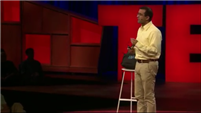
Transcript & Useful expressions:
I want to share with you something my father taught me: no condition is permanent. It’s a lesson he shared with me again and again and I learned to be true the hard way. Here I am in my fourth-grade class. This is my yearbook picture taken in my class in school in Monrovia, Liberia. My parents migrated from India to West Africa in the 1970s, and I had the privilege of growing up there.
no condition is permanent 世界在改变
the hard way 来之不易
yearbook picture 年鉴/年册图片
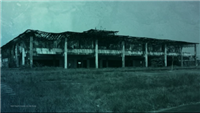
Transcript & Useful expressions:
I was nine years old. I loved kicking around a soccer ball, and I was a total math and science geek. I was liking the kind of life, that, really, and child would dream of. But no condition is permanent. On Christmas Eve in 1989, civil war erupted in Liberia. The war started in the rural countryside, and with months, rebel armies had marched towards our hometown. My school shut down and when the rebel armies captured the only international airport, people started panicking and fleeing. My mom came knocking on morning and said, “Raj, pack your things, we have to go.” We were rushed to the centre of town, and there on a tarmac, we were split into two lines. I stood with my family in one line and we were stuffed into the cargo hatch of a rescue plane. And there on a bench, I was sitting with my heart racing. As I looked out the open hatch, I was hundreds of Liberians in another line, children strapped to their backs. When they tried to jump in with us, I watched soldiers retain them. They were not allowed to flee.
a total math and science geek 痴迷于数学和科学的人
dream of 羡慕…,渴望…
panicking and fleeing 惊慌失措
(be) stuff(ed) into (被)塞进
cargo hatch (货)舱
heart racing 心跳加速
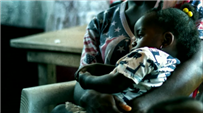
Transcript & Useful expressions:
We were the lucky ones. We lost what we had, but we resettled in America, and as immigrants, we benefited from the community of supporters that rallied around us. They took my family into their home, and they mentored me. And they helped my dad start a clothing shop. I’d visit my father on weekends as a teenager to help him sell sneakers and jeans. And every time business would get bad, he’d remind me of that mantra: no condition is permanent. That mantra and my parents’ persistence and that community of supporters made it possible for me to go through college and eventually to medical school. I’d once had my hopes crushed in a war, but because of them, I had a chance to pursue my dream to become a doctor. My condition had changed.
benefited from 受益于…
rally (around) 团结支持,集体声援
mentor 教育
mantra 格言,准则,咒语
go through 经历,经受,完成
pursue one’s dream 追求梦想

Transcript & Useful expressions:
It had been 15 years since I escaped that airfield, but the memory of those two lines had not escaped my mind. I was a medical student in my mid-20s, and I wanted to go back to see if I could serve the people we’d left behind. But when I got back, what I found was utter destruction. The war had left us with just 51 doctors to serve a country of four million people. It would be like the city of San Francisco having just 10 doctors. So if you got sick in the city where those few doctors remain, you might stand a chance. But if you got sick in the remote, rural rainforest communities where you could be days from the nearest clinic……. I was seeing my patients die from conditions no one should die from, all because they were getting to me too late. Imagine you have a two-year-old who wakes up one morning with a fever, and you realise she could have malaria, and you know the only way to get her the medicine she needs would be to take her to the riverbed, get in a canoe, paddle to the other side and then walk for up to two days through the forest just to reach the nearest clinic. One billion people live in the world’s most remote communities, and despite the advances we’ve made in modern medicine and technology, our innovations are not reaching the last mile. These communities have been left behind, because they’ve been thought too hard to reach and too difficult to serve.
the memory of sth escapes one’s mind 不会忘记…
serve sb. 为…能做些什么,为…服务
utter 完全的
stand a chance 有机会,有可能
Imagine 试想
remote communities 偏远的社区
not reach the last mile 无法到达世界的每一个角落
be left behind 被落下
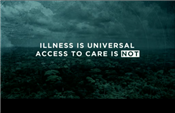
Transcript & Useful expressions:
Illness is universal; access to care is not. And realising this lit a fire in my soul. No one should die because they live too far from a doctor or clinic. No condition should be permanent. And help in this case didn’t come from the outside, it actually came from within. It came from the communities themselves. Meet Musu. Way out in rural Liberia, where most girls have not had a chance to finish primary school, Musu had been persistent. At the age of 18, she completed high school, and she came back to her community. She saw that none of the children were getting treatment for the diseases they needed treatment for like deadly diseases, like malaria and pneumonia. So she signed up to be a volunteer. There are millions of volunteers like Musu in rural parts around our world, and we got to thinking…community members like Musu could actually help us solve a puzzle.
Illness is universal; access to care is not. 疾病踏遍了世界,而医疗没有。
light a fire in my soul 在心里燃起一团火焰(lit 是light的过去式/过去分词)
come from within …来自本身
get to thinking 开始思考
solve a puzzle 解决难题
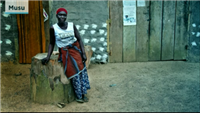
Transcript & Useful expressions:
Our health care system is structured in such a way that the work of diagnosing disease and prescribing medicines is limited to a team of nurses and doctors like me. But nurses and doctors are concentrated in cities, so rural communities like Musu’s have been left behind. So we started asking some questions: What if we could reorganise the medical care system? What if we could have community members like Musu be a part or even be the centre of our medical team? What if Musu could help us bring health care from clinics in cities to the doorsteps of her neighbours? Musu was 48 when I met her. Despite her amazing talent and grit, she hadn’t had a paying job in 30 years. So what if technology could support her? What if we could invest in her with real training, real equip her with real medicines, and have her have a real job?
structure 形成结构体系
concentrated 集中的,密集的
What if … 如果…怎么办?
medical care system 医疗保障体系
doorsteps 家门口,门阶
grit 勇气,毅力
equip sb with 使…有知识有技能,使…能够胜任…
后续内容请访问:
https://www.ted.com/talks/raj_panjabi_no_one_should_die_because_they_live_too_far_from_a_doctor
更多精彩内容记得关注http://beijing.gedu.org/ 每天都有新的知识点。

北京市海淀区环球雅思培训学校 版权所有 课程咨询热线:400-616-8800
Copyright 1997 – 2026 gedu.org. All Rights Reserved 京ICP备10036718号
全部课程、服务及教材面向18岁以上人群
市场合作申请